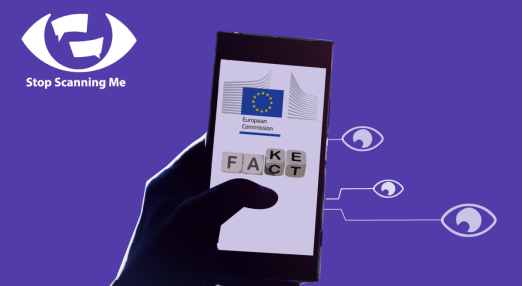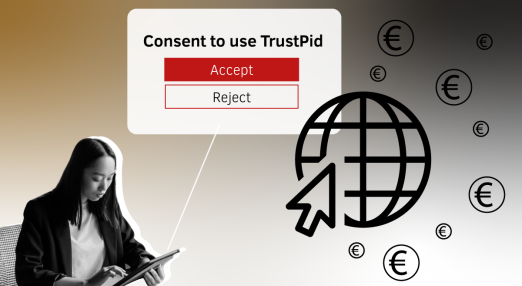Unprecedented appearance by European Commissioner for Home Affairs, innovating on quicksand, and the cabinet vs. online confidentiality
Read through the most interesting developments at the intersection of human rights and technology from the Netherlands. This is the second update in this series.
Filter resources
-

Unprecedented appearance by European Commissioner for Home Affairs, innovating on quicksand, and the cabinet vs. online confidentiality
Read through the most interesting developments at the intersection of human rights and technology from the Netherlands. This is the second update in this series.
Read more
-

“Social media profiles and phone contacts” used as proof of identity for deportations
Thirteen non-EU countries sometimes accept “social media profiles and phone contacts” as evidence of identity for the purpose of deportations, according to an internal European Commission assessment of third country cooperation on readmission.
Read more
-

Who does the EU legislator listen to, if it isn’t the experts?
There's a huge gap between the advice given by experts on combatting child sexual abuse and the legislative proposal of the European Commission.
Read more
-

European digital identity – a potential game changer?
The foundations for a Europe-wide digital identity system are just about to be laid. Will Europe get it right and lead on this important topic? Will the EU set a global standard for the protection of sensitive user information and digital identities?
Read more
-

Poll: Young people in 13 EU countries refuse surveillance of online communication – Press Release
According to the results of the survey, 80% of young people aged 13 to 17 years old from 13 EU Member States would not feel comfortable being politically active or exploring their sexuality if authorities were able to monitor their digital communication, in order to look for child sexual abuse.
Read more
-

Position Paper: EU’s proposed health data regulation ignores patients’ privacy rights
EDRi’s new position paper outlines how the European Commission’s proposal for a European Health Data Space, in an attempt to make use of people’s health data, would sabotage the rights of patients to make decisions about their private medical information.
Read more
-

Poland: the government declares no further extension of data retention obligation
Data retention obligation will not be further extended in Polish law on electronic communication. However, the current, unlawful scope of telecommunication data retention remains unchanged.
Read more
-

European Commission must have greater ambition in combating sexual violence
Last year, the European Commission made a far-reaching proposal to protect children against sexual violence. But a study by Delft University shows that there is a lot wrong with the substantiation of the proposal.
Read more
-

The secret services’ reign of confusion, rogue mayors, racist tech and algorithm oversight (or not)
Have a quick read through January’s most interesting developments at the intersection of human rights and technology from the Netherlands.
Read more
-

TrustPid: Baking ad tracking into the internet infrastructure
A consortium of Europe’s largest telecommunications operators (telcos) has proposed a new kind of tracking ads system to challenge commercial surveillance heavyweights like Google and Facebook. The new tracking system, misleadingly dubbed ‘TrustPid’, would be baked into the internet’s network infrastructure – potentially with little recourse or defence for users.
Read more
-

Back to the Future: Activism, the copyright Directive and lessons for the present
The Copyright Directive marked a key moment in internet history. Civil society, and EDRi in particular, have reflected on the role we played in the political debate and what would that mean for future digital policy fights. In this blogpost, we look back to assess the success of the strategies we adopted and what are the takeaways we should keep in mind when challenging current human rights threats like chat control and facial recognition.
Read more
-

EdTech needs schooling
It is vital that the introduction of technology to the classroom is accompanied by appropriate and robust human rights safeguards to ensure that every child around the world can safely access an education, without giving up their right to privacy or becoming hostages to a future of data exploitation. Read why EdTech needs schooling to ensure the safety of the children they are responsible for.
Read more
